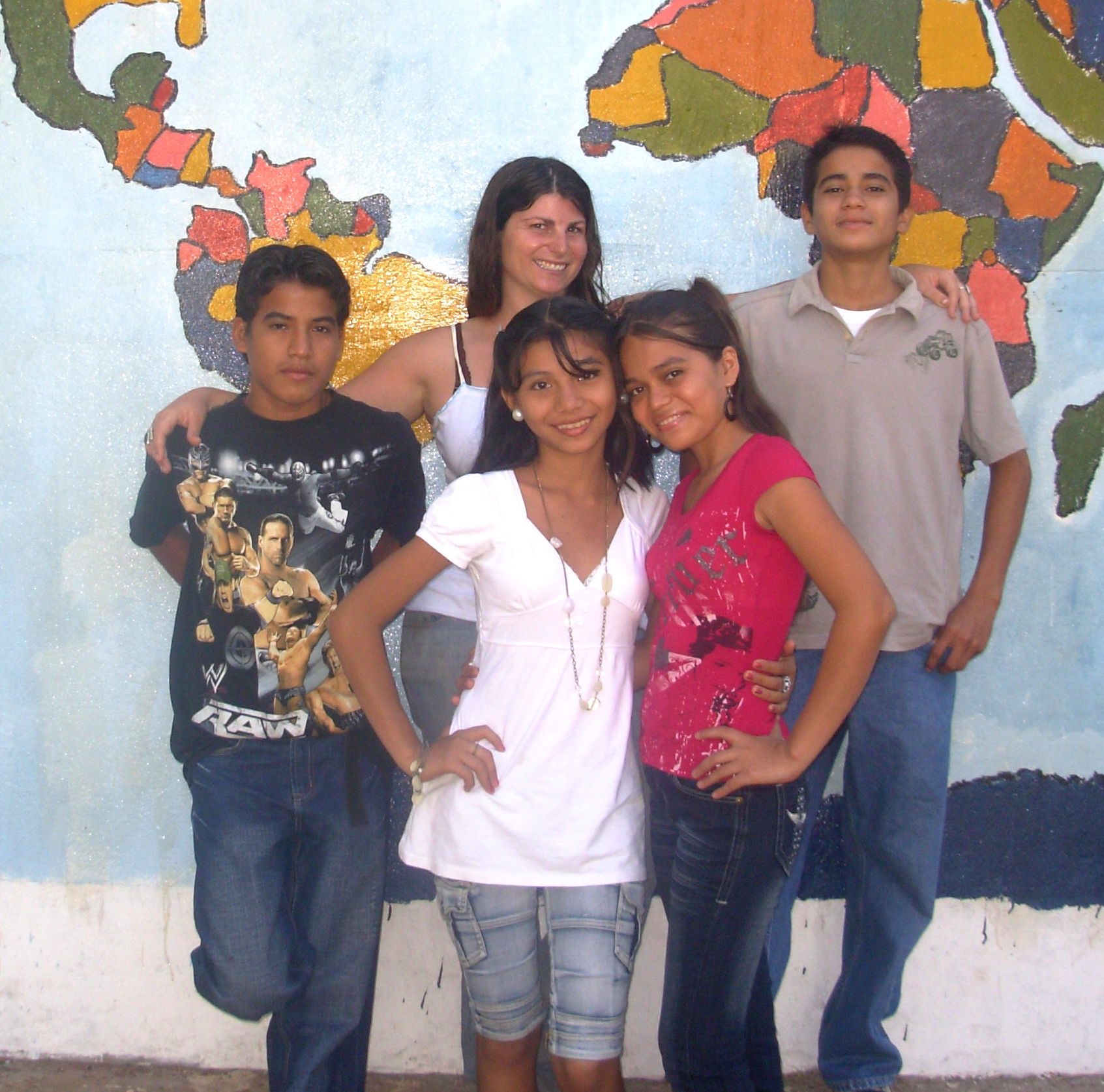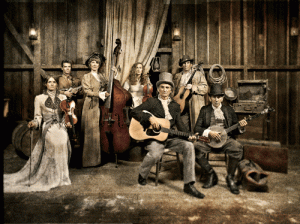By Bill Hatcher
They call it “The Toughest Job You’ll Ever Love,” and those who know it best say it represents America at its finest. Celebrating its 50th year, the Peace Corps continues striving to promote nothing less than international friendship and world peace. However, no one reading this article need be reminded that the U.S. is now involved in multiple wars and is convalescing from the worst economic crisis in 80 years.
Given such contrast, it seems that two questions demand a closer look: How successful has the Peace Corps been in achieving its grand mission, and can we afford to continue funding international aid programs like the Peace Corps in hard times like these?
![DSCN0023[1]](https://coloradocentralmagazine.com/wp-content/uploads/2011/09/DSCN00231-300x296.jpg)
In 2010, the Obama administration increased the Peace Corps’ budget from $340 million to $400 million (just over $1 per U.S. citizen per year), which is where it remains for Fiscal Year 2011. However, bills that would have nearly doubled that budget to $750 million by 2012 did not pass in the wake of the recent recession. During the same time period, 2012 spending under the rubric of defense will climb to an all-time high that could easily top $1 trillion; as much as the rest of the world’s military spending combined. (For comparison, the total amount used to run the Peace Corps for the last 50 years accounts for less than 2% of the 2012 U.S. defense budget alone.)
As it turns out, dozens of returned Peace Corps volunteers live in Central Colorado. Interested in talking to a few of them about their experiences and opinions, I first met with May and Dale Engquist at the 4th Street Diner in Saguache.
The Engquists were art majors when they met back in the 1960s at the University of Northern Colorado. After graduating, they married and eventually made their way to Western State University in Gunnison, where Dale taught art classes for the next 20 years.
They joined the Peace Corps after Dale retired in 1988, and were off to Botswana. Both taught pencil-drawing to students they describe as being highly attentive and respectful, and who ranged in age from mid-teens to twenties.
“To them, we were so rich,” Dale remarked. “But we never had an incident of anyone giving us any grief. These old people would come and say, ‘Thank you for teaching our children.’”
Referencing American-made videos available in Botswana that often glamorized drug addiction, gratuitous sex, and violence, Dale commented on “… how disappointing it was to see what (the Botswanans) wanted to emulate. I think all of us feel disappointed that people in the world want to emulate the worst aspects of our country.”
Even so, Dale said, “I’ve never been around a bunch of people who laughed and sang so often. I’ve never seen people laugh like that. They laughed with all their heart.” The Engquists went on to say that the Botswanans realized their misconceptions about Americans by seeing how the Engquists and other volunteers lived and interacted.
Changing tack, I reminded them about America’s wars and rumors of wars, and asked if they thought the Peace Corps has lived up to its name. Leveling his gaze, Dale responded, “If I boiled it all down, the Peace Corps is good. It’s helpful to us, going in and learning about another culture, and I think we do some good.”
“You know, traveling is fun,” May said, “but living there really gets you into a culture so you can understand it a lot more and become a part of it, and it becomes a part of you … When we got off the plane coming home, I remember thinking what I’m going to miss most about Africa was the smells. The smell of earth, and the smell of reality.”
“Open sewage,” Dale added. “You know, it wasn’t always pleasant …”
After the Engquists, I was curious about the experiences and opinions of a more recent, college-aged volunteer as well, so I called Devon Pollack. Devon graduated from Colorado State University in 2006 with a concentration in International Studies. In our phone interview, she described how she’d taken college classes that focused on sobering, current affairs in places like Rwanda, Congo, and Haiti. Devon said the material was engaging, but more than anything else, “I just felt really helpless and it made me sad, and I felt like I just really wanted to do something good and try to make the world a little bit better.”
At age 26, Devon joined the Peace Corps and started her assignment in El Salvador. Most of that time she instructed classes in health education and nutrition for boys and girls aged 6-17, all of which were taught in Spanish.
After returning to the States, Devon moved to Saguache, and then Salida, while volunteering a year for the AmeriCorps VISTA (Volunteers in Service to America) program. But her passion for Latin America and the Spanish language soon led her to Fort Lewis College in Durango. After completing coursework she’ll be certified to teach K-12 Spanish, which she intends to use by helping underprivileged Hispanic-American children.
Concerning the U.S. budget crisis, Devon says, “I think [peace programs] should expand … To me, cutting back and just spending more money on the military – I think we’re going the wrong direction globally.”
Pushing her on that point, I cited the view that the military must occupy certain countries in order to stem terrorist activities. But Devon flatly disagreed. “Yeah, no I think U.S. invasions are probably exacerbating the problem … I think (we need to focus on) positive, peaceful goals aimed at having world peace and international development rather than war, which is causing a lot of people to not like us very much.”
Devon’s opinions on war and peace prompted me to find someone with broader experiences than Peace Corps alone. So turning north, I drove to Buena Vista to meet with Alan and Karen Robinson. The Robinsons are a quiet couple in their 60s who now live a few miles north of BV. However, the years they’ve lived abroad rivals the time they’ve spent on U.S. soil. Suffice it to say that after having worked for the United Nations, various NGOs, and humanitarian aid organizations, including the Peace Corps, the Robinsons have racked up time on five continents, together speak four languages, and have lived long-term among majority populations of Hindus, Muslims, and others.
From 1973-75, Karen was a Peace Corps volunteer helping manage and survey national parks in the Philippines. When her contract ended, she flew directly to Nicaragua to begin a second, two-year assignment. “I think as far as going to a country and making people aware of Americans on a different level, I think [Peace Corps] succeeds hugely. They’re the best diplomats around …” A 2010 revisit to Nicaragua and reunion with her local counterpart confirmed that her service has made lasting contributions to a much-expanded set of protected areas.
Alan worked as a Peace Corps fisheries biologist on Lake Chad, Nigeria, at the edge of the Sahara from 1966-68. His assignment focused on Nile Perch (fish that can weigh over 200 pounds) in waters that had been severely overfished since the arrival of newer, more efficient fishing methods such as nylon nets and outboard motors.
I asked him if the Peace Corps simply fills jobs that indigenous people could (and probably should) fill themselves. “No one else in Nigeria was both qualified and willing to go to such a remote location at a time of great civil unrest (the Biafran War). At that period in Nigeria’s technological development, we were definitely helping out where they didn’t yet have the expertise. This has changed in many countries over the years, but there are still many jobs which volunteers can fill without displacing locally qualified workers.”
With access to such technology and resources, I had to wonder if locals had ever accused them of being undercover agents – or if U.S. officials had ever asked volunteers to gather a little soft-Intel. “I think there were a couple of volunteers in my group who were approached by a congressman to give information,” Karen said. “And I think that happened more frequently (in the early years). I don’t think they would dare do that now.”
“In my experience, Peace Corps people just don’t think like that,” Alan said. “And besides, there are strict policy regulations that prohibit volunteers from taking on any such roles.”
As for the next 50 years, “The Peace Corps will become even more important as the relative position of the U.S. in the world shifts, as it already is,” Alan said. “I think that non-aggressive, non-military aid-based programs like Peace Corps will have a much greater impact than military options.”
“However,” Karen added, “I have to say that I have heard some stories, and seen them on TV, of military units in Afghanistan where pretty much they go into a village … (They) learn the language, and they’re working with the people. And I’ve seen these stories and I thought, Wow, they’re finally learning that it’s not just all about combat; that they have to work with these villagers developing trust that leads to sustainable change.”
Senator Michael Bennet (D-CO) has served neither in the Peace Corps nor in the military. He did, however, recently support increased spending on both the Peace Corps and defense. Interested in his reasoning, I contacted him. (I also emailed and left phone messages for the press secretary of Congressman Scott Tipton (R-CO, 3rd District), but received no reply.)
“I was a strong supporter and cosponsor of the Peace Corps Improvement and Expansion Act (S.1382) during the 111th Congress,” Senator Bennet wrote. “The bill called on the Peace Corps to expand opportunities to new countries, as well as broaden the scope of Peace Corps for the 21st century and include countries we’ve never been to before.”
Only a few months ago, however, our nation teetered on the brink of a government shutdown. H.R.1 was a bill that moved through congress in an attempt to keep doors open, but did not pass. This bill was a no-sacred-cows approach to cutting the deficit that would have spared no one – except for the military. Bennet voted “no” on H.R.1 because, he explained, “It made large, piecemeal cuts to relatively small programs like the Peace Corps that target only a small percentage of the budget and would not have materially reduced the deficit … I also think that the Peace Corps has a valuable role to play in providing young people with the opportunity to develop their skill sets in what is currently a very difficult job market for all Americans.”
Regarding the Peace Corps’ relevancy despite the global turbulence of the last half century, Bennet pointed out that many foreign leaders speak fondly of their memories of volunteers who made positive impressions on them as children or young adults. Also, “Because of the Peace Corps, teachers in rural Namibia have learned new education methods. And HIV infected women in urban Ecuador have been able to fight the stigma associated with the virus . . .”
As for military spending, “I have supported and will continue to support legislation that gives our service members the tools and support they need to complete their missions. I have also voted to cut waste, fraud and abuse in the Defense Department …We can both support our military as well as important programs like the Peace Corps.”
Everyone I spoke WITH attested that the lifeblood of the Peace Corps has certainly not grown cold; its pulse is strong and vital, if underfed. Since America’s socio-economic muscle is so well endowed, they agreed, it remains our ethical obligation to lend an international helping hand – even though things here at home aren’t necessarily perfect. Because they never will be.
In any case, it seems a safe bet that the Peace Corps will continue to form the vanguard of America’s humanitarian spirit, and a paragon to which other nations look when modeling their own international peace efforts. Even the military has started to employ collaborative approaches with native populations such as the U.S. Marine’s Female Engagement Teams that work with schools and orphanages in Afghanistan using tactics reminiscent of Peace Corps.
As far as defense versus peace spending goes, well, it’s complicated. Although Sherwood Ross, a columnist writing for Intelligence Daily, simplified the matter in his April 11 article. His plan “… would require the Peace Corps and the Pentagon to switch budgets and personnel numbers. Restricted to $400 million a year and 8,600 troops the Pentagon couldn’t possibly raise all the hell it does. And with a $1 trillion budget and three million workers, the Peace Corps might just work wonders.”*
*Used with permission.
Bill Hatcher served as a Peace Corps Volunteer in Tanzania from 1994-96. He now lives near Villa Grove.



